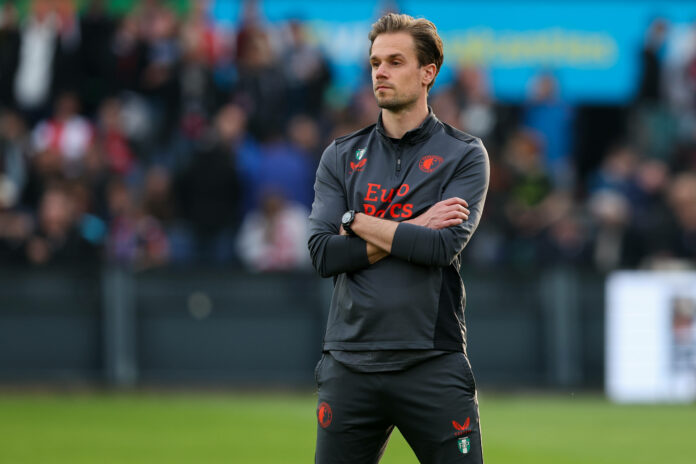Liverpool’s New Fitness Regime: Ruben Peeters’ Crucial Role
Liverpool’s appointment of Ruben Peeters as a pivotal figure in their backroom staff has sparked quite a discussion. David Lynch, during his appearance on the Anfield Index’s ‘Media Matters’ podcast, provided some enlightening perspectives on what this means for the club moving forward. The arrival of Peeters might be exactly what Liverpool needs to address their troubling injury woes and improve their overall fitness strategy.
Bridging the Gap in Fitness and Physiotherapy
According to Lynch, Peeters’ role “seems to sit somewhere in between what Schlumberger and Kornmayer were doing in ensuring these players are physically prepared for a 50 game season.” This statement underscores the hybrid nature of Peeters’ position, which appears to blend rigorous physical preparation with cutting-edge sports science. The balance is crucial, as it ensures players are not only peak performers but also less prone to injuries—a recurring issue that has plagued Liverpool in recent seasons.
Peeters’ approach could be a game-changer for Liverpool, particularly given the physical demands of competing at the highest level across multiple competitions. His comprehensive strategy, focusing on both prevention and recovery, could potentially lead to a marked decrease in the frequency and severity of player injuries.
Addressing the Injury Blame Game
The departure of Kornmayer from Liverpool brought with it various criticisms and controversies, as highlighted by Lynch. He pointed out, “I know towards the end there were clashes in some things written about Kornmayer, but the blame around injuries should be spread out.” This comment sheds light on the complexities of injury management in football, where multiple factors—such as training loads, match intensity, and individual player vulnerabilities—converge.
Lynch’s perspective is a call for a more nuanced understanding of the injury situation at Liverpool, suggesting that it isn’t just about one individual’s methodology but a collective set of circumstances that need addressing. Peeters’ background and expertise could provide fresh insights and innovations that might alleviate some of these persistent issues.
Preparing for Deep Runs in Competitions
One of the most pressing expectations for Peeters, as Lynch elucidates, is preparing the squad “for them to go deep in all of the competitions.” The task at hand is formidable. As Lynch states, Peeters has “a lot on his plate in terms of making sure injuries are less of a problem going forward because it had derailed three of our last four seasons, in my opinion.”
This strategic shift in the fitness and medical department is critical as Liverpool aims to remain competitive on all fronts, especially in gruelling tournaments like the Premier League and Champions League. Effective injury management and a robust fitness regime will be key to their success.
Continuity and Innovation Under Slot and Peeters
The collaboration between Peeters and the newly appointed manager Arne Slot is another focal point. Slot’s familiarity with Peeters’ work ethic and philosophy could be instrumental in seamlessly integrating new training regimes and health management strategies at Liverpool. Lynch optimistically notes, “It’s good that Slot has someone that he has worked with before and hopefully it is a step forward that can help Liverpool have fewer injury problems because it has been a real problem in recent seasons.”
This synergy between manager and fitness coach can potentially foster a more cohesive and proactive approach to player management, aligning tactical and physical preparations to optimize performance and minimize risks.
Ruben Peeters’ appointment at Liverpool comes at a time when the club is in dire need of revitalizing its approach to player fitness and injury management. The insights provided by David Lynch on the ‘Media Matters’ podcast paint a picture of cautious optimism. If Peeters can implement his innovative strategies effectively, Liverpool might just find themselves overcoming the physical hurdles that have hindered their progress in recent years. This could be the dawn of a new era for the Reds, one where fitness concerns take a backseat, allowing pure footballing talent to thrive.



